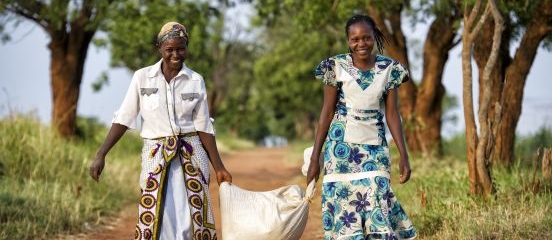Where are all the men?
21 March 2014

By Zemach Getahun, Farm Africa's Gender and Business Development Adviser, based in Ethiopia
It’s incredible what you notice when you land in a new country for the first time. I arrived in the USA to be greeted by one of the snowiest winters in New York’s history with the temperature below freezing – quite a transformation after coming from Ethiopia.
I’ve flown to New York to attend the 58th session of the UN’s Commission on the Status of Women.
And thawing out in the first session of the conference, I noticed a second thing as I scanned around the huge conference room. There appeared to be no men in the room. Eventually I was able to count ten although it turned out that five were journalists there to report, and the other five were women with short hair. We all have a role to play here in moving towards gender equality so it's disappointing to see just how few men are here.
And as we got further into the conference, this sense of disappointment began to grow. With just one year to go before we know whether the Millennium Development Goals we set ourselves in 2000 have been met, we worked to evaluate just how far we have come. The consensus at the conference was pretty universal: not far enough!
I know from my own work just how marginalised women in rural communities can be and it’s so important to have as many different women’s voices represented as possible. Countries need to do much more to live up to the protocols on women’s rights that they have signed. And to ensure that we amplify women’s voices in decision-making processes. That requires much more collaboration across continents between activists and development-focused organisations.
On a much more positive note, I was thrilled to meet some truly inspirational women and community leaders at the conference. Panellists from countries as diverse as China, Chile, Kyrgyzstan and right across Africa spoke on the work they are doing to resolve such pressing problems as sexual health and gender-based violence.
One of the most inspiring people to speak was a man. Imam Djiguiba from Cote d’Ivoire has campaigned against Female Genital Mutilation (FGM) for many years now. He has led on this issue and proved very persuasive, convincing 80% of religious leaders from his mosque to speak out against FGM. It was incredibly moving to hear him speak about his work in Côte d'Ivoire alongside Chantal Compaoré, Burkina Faso’s First Lady who is well-known for her work in campaigning against FGM.
Read about how several of our projects have a direct impact on the farming women of eastern Africa.

